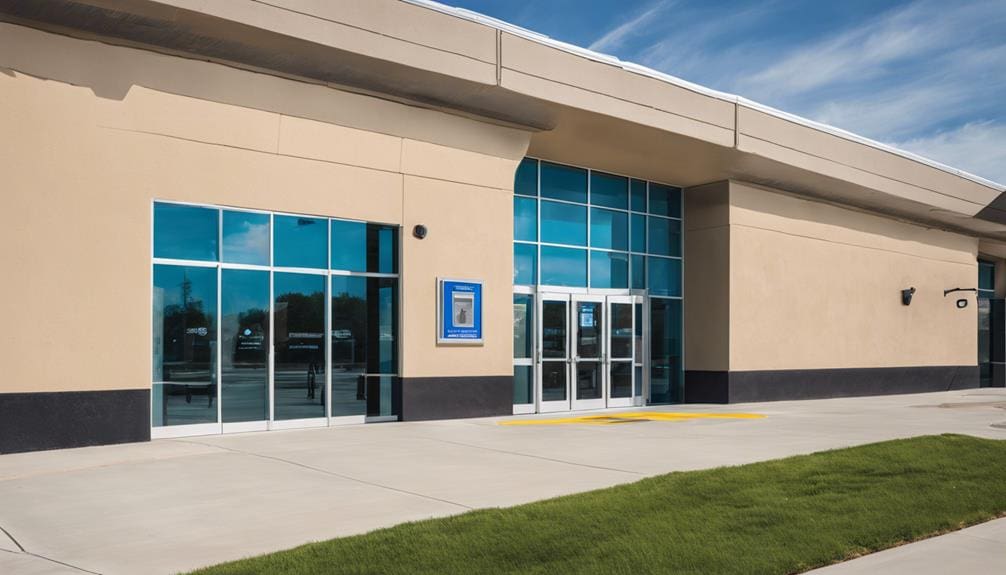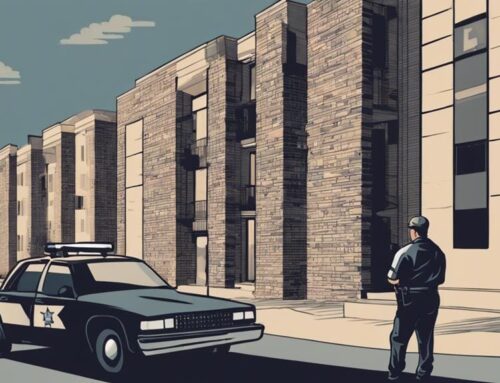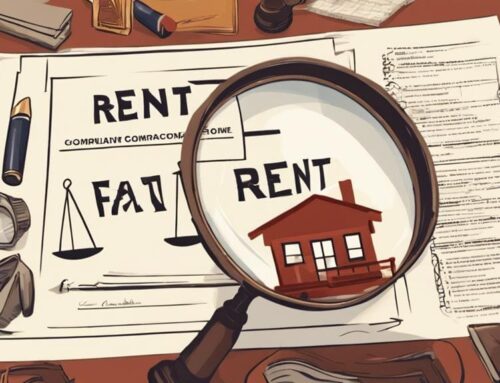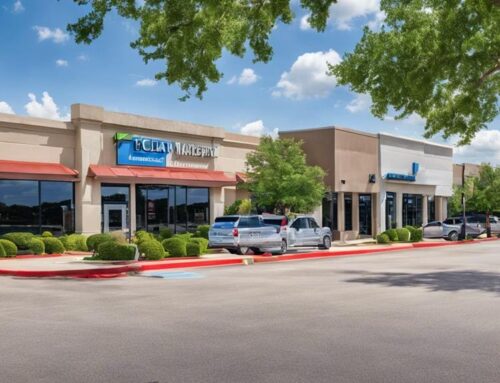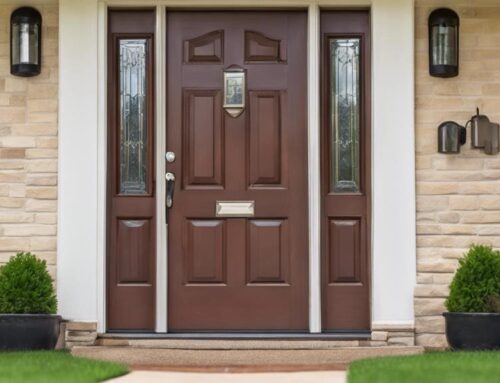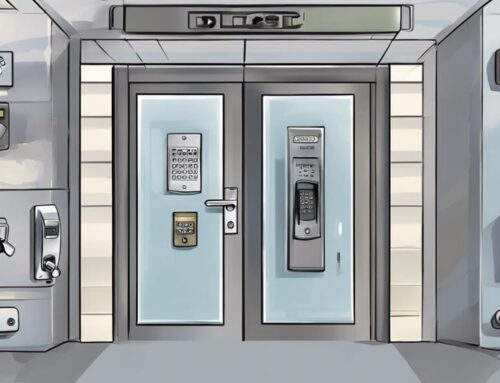You need to follow Texas commercial door lock laws closely for tenant safety and legal compliance. Landlords must rekey locks within seven days of a new tenant moving in and install keyless deadbolts on all exterior doors. Sliding patio doors must have specific security devices. Tenants can request free rekeying within seven days of occupancy, and it’s illegal to charge them for this service. Non-compliance can result in fines, legal liability, and lawsuits. Utilizing compliant lock types and updating security measures guarantees adherence to state regulations. For a deeper understanding of compliance and professional guidance, explore further.
Key Takeaways
- Landlords must rekey locks within seven days of a new tenant’s move-in.
- Keyless deadbolts are required on all exterior doors.
- Specific security devices are mandated for sliding patio doors.
- Charging tenants for rekeying services is prohibited.
- Non-compliance can result in fines, penalties, and legal liability.
Overview of Texas Door Lock Laws
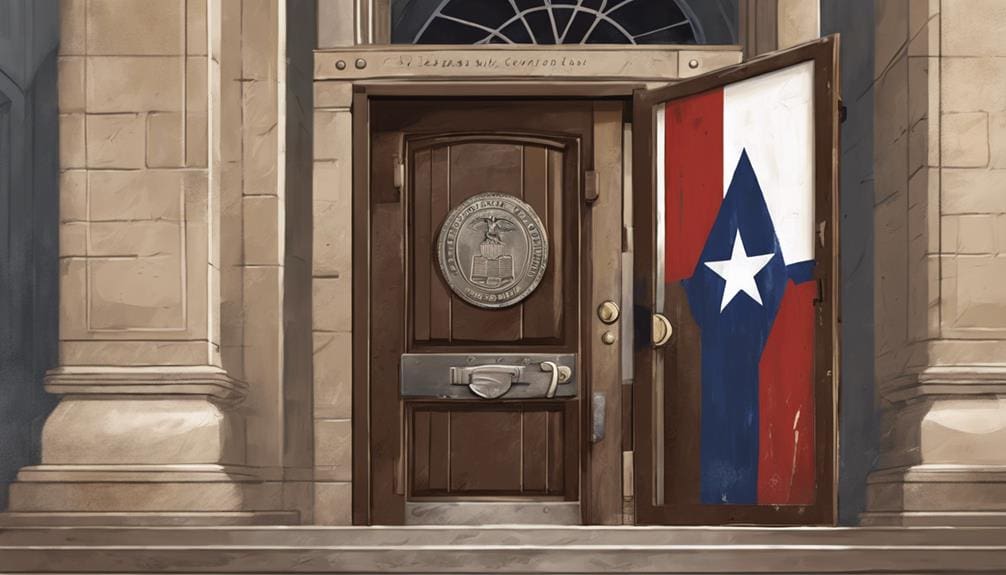
In Texas, commercial door lock laws mandate that landlords rekey locks within seven days of a new tenant moving in, guaranteeing immediate security compliance. This rule is a critical component of the Property Code designed to protect the safety and security of rental property occupants. By adhering to these laws, you foster a sense of trust and belonging among tenants, highlighting your commitment to their well-being.
Beyond rekeying locks, the Property Code requires landlords to install keyless deadbolts on all exterior doors. This measure significantly enhances the security of the property, reducing unauthorized access. Additionally, specific security devices like door viewers (peepholes) and pin locks must be installed on sliding patio doors. These requirements aim to provide thorough security solutions tailored to the unique vulnerabilities of commercial rental properties.
Non-compliance with these regulations can have severe repercussions. Landlords who fail to adhere to the Property Code face potential liability issues and the risk of tenants canceling leases. Hence, it’s crucial to ensure strict adherence to these security device mandates. By doing so, you not only comply with legal obligations but also create a safer, more secure environment for your commercial rental property’s tenants.
Tenant Rights and Lock Regulations
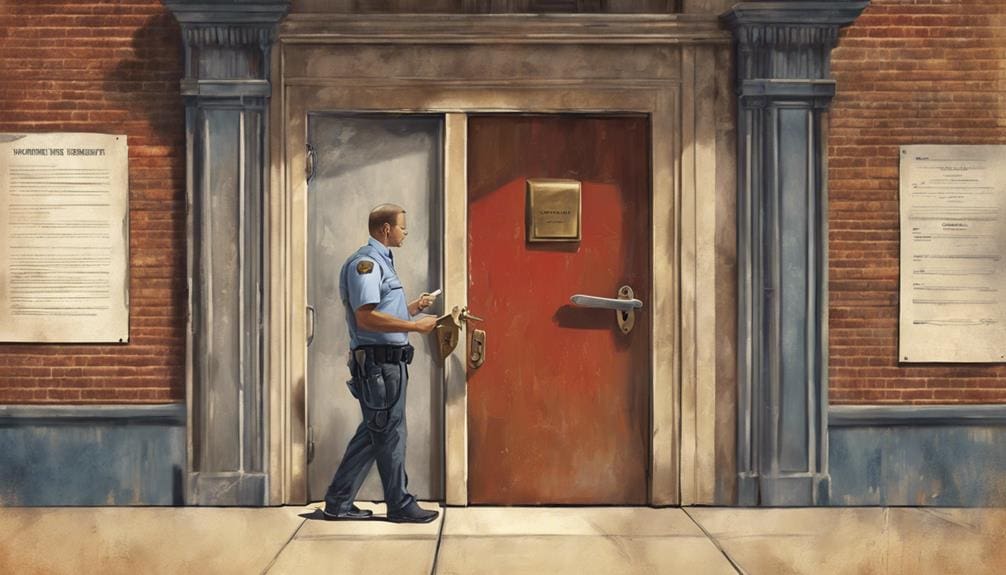
Texas law guarantees that commercial tenants have the unequivocal right to request rekeying of locks within seven days of occupancy at no cost. As a tenant, this secures your security needs are met promptly. The Texas Department of Licensing enforces these regulations to protect your rights and maintain industry standards.
You should be aware of the following critical points:
- Keyless Deadbolts: All exterior doors must have keyless deadbolts, enhancing security and providing peace of mind.
- Compliance with Property Code: Landlords must ensure that all security devices comply with the Texas Property Code to avoid legal issues.
- Lease Cancellation: As a tenant, if lock laws aren’t followed, you can legally cancel your lease, guaranteeing you’re not stuck in an insecure environment.
For tenants in sexually oriented businesses, specific licensing requirements mandate additional security measures. The Texas Department of Licensing oversees these regulations to secure all businesses, especially those with heightened risk factors, adhere to stringent security protocols.
Understanding your rights and the lock regulations empowers you to take necessary actions if your landlord fails to comply. By staying informed, you can secure a safe and legally compliant business environment, fostering a sense of belonging and security within your commercial space.
Landlord Obligations for Locks

Securing your commercial property’s locks to comply with state regulations is a crucial responsibility for landlords. In Texas, you must adhere to specific licensing and regulation standards to maintain a secure environment for your tenants. This includes the obligation to rekey locks within seven days of a new tenant moving in, at your own expense. Charging tenants for this service is illegal and could result in legal repercussions.
Furthermore, all exterior doors in your commercial rental properties must be equipped with keyless deadbolts. Compliance with this requirement not only enhances security but also shields you from potential liability issues. These security devices are non-negotiable, and failure to install them can lead to severe consequences, including tenants having the right to cancel their lease agreement.
In addition, you must verify that door viewers are installed to meet state security standards. Ignoring these regulations can substantially increase your liability in the event of a break-in.
Rekeying and Keyless Deadbolts
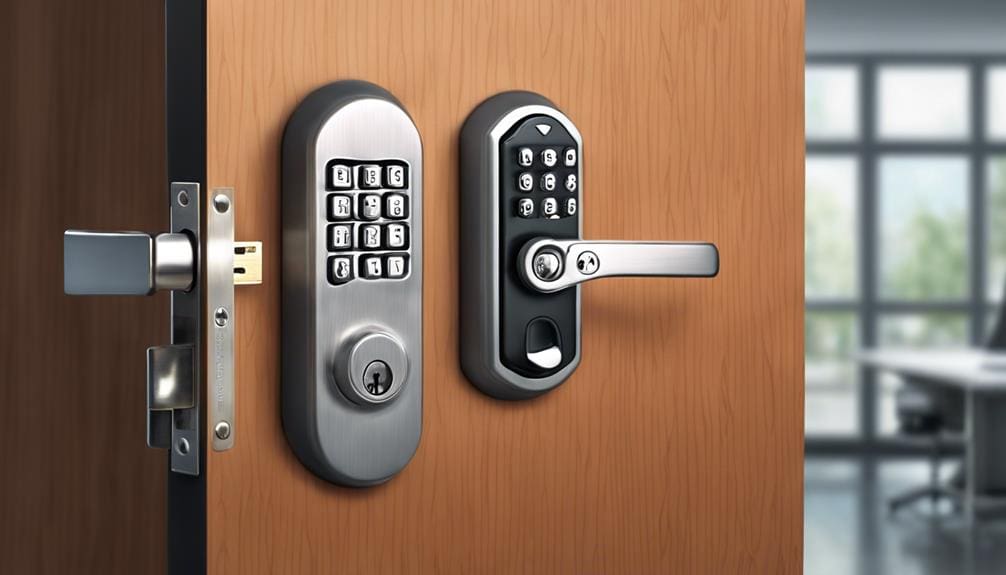
As a landlord, you must rekey locks within seven days of a new tenant’s move-in and guarantee keyless deadbolts are installed on all exterior doors to comply with Texas commercial door lock laws. This responsibility safeguards the security of your tenants and adherence to state regulations. You can’t pass the expense of rekeying onto your tenants; it’s a cost you must absorb as part of maintaining a safe property.
Keyless deadbolts are essential for meeting Texas security standards. Specifically, you need to verify:
- Installation on all exterior doors: Every exterior door, including those leading to garages, must have a keyless deadbolt.
- Compliance with legal requirements: Keyless deadbolts must meet specific security criteria to be considered compliant.
- Prompt action: Failure to install these devices promptly can result in legal consequences, including lease cancellation and increased liability in case of a break-in.
Security Devices for Exterior Doors
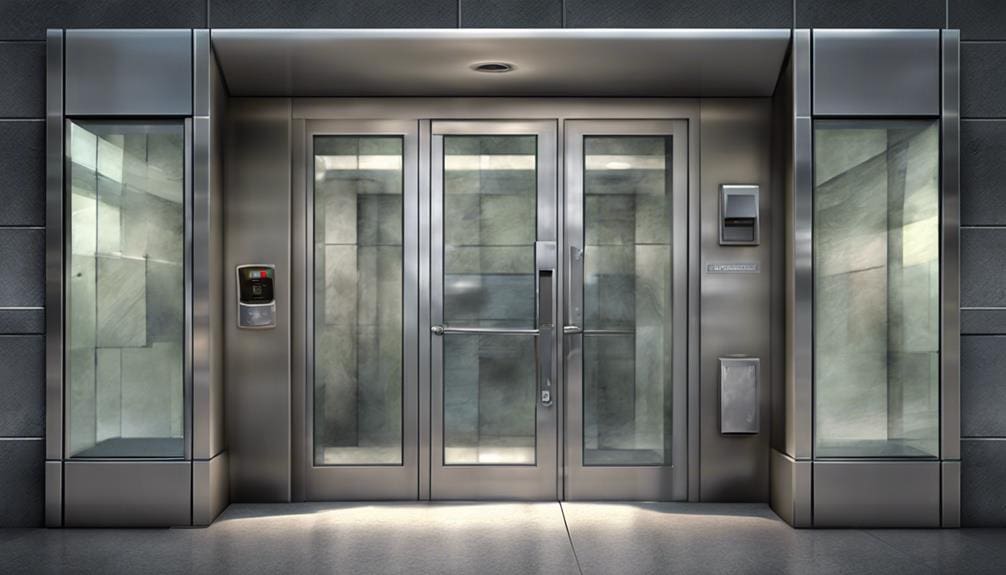
Every exterior door in a commercial property must be equipped with specific security devices to meet Texas regulations and guarantee occupant safety. Keyless deadbolts are a standard requirement, enhancing security by eliminating the risk associated with lost or duplicated keys.
You’ll also need to install door viewers, or peepholes, allowing occupants to see outside before opening the door, which is vital for preventing unauthorized access and ensuring peace of mind.
For sliding patio doors, Texas law mandates a pin lock combined with a locking handle. This dual security measure makes it much more challenging for intruders to force entry.
While exit doors don’t need keyed deadbolts, they must still feature keyless deadbolts to guarantee quick and safe egress during emergencies, streamlining compliance with fire safety regulations.
Adhering to these requirements isn’t just about meeting legal standards—it’s about fostering a secure environment where everyone feels safe. By implementing these mandated security devices, you demonstrate a dedication to the safety and well-being of your property’s occupants.
This not only enhances your reputation but also creates a sense of trust and belonging among those who frequent your commercial space.
Legal Consequences of Non-Compliance

Ignoring Texas commercial door lock laws can expose landlords to severe legal repercussions, including fines, penalties, and potential lawsuits. When you neglect these regulations, you increase your liability in the event of a break-in. Tenants may also have the right to cancel their lease agreements, leading to financial losses and reputational damage.
Non-compliance can lead to several specific legal consequences:
- Fines and Penalties: State authorities can impose significant fines and penalties on landlords who fail to adhere to the Property Code requirements.
- Legal Liability: In the unfortunate event of a break-in, your liability skyrockets, as your failure to follow lock laws can be seen as negligence.
- Lawsuits: Tenants or other affected parties may file lawsuits, seeking compensation for damages or injuries sustained due to your non-adherence.
To avoid these pitfalls, you must verify all security devices meet state standards. Not only does this protect your property, but it also safeguards your tenants, fostering a sense of security and belonging.
Understanding and adhering to these regulations isn’t just about avoiding legal trouble—it’s about building a trustworthy and safe environment for everyone involved.
Power Operated Locks Requirements
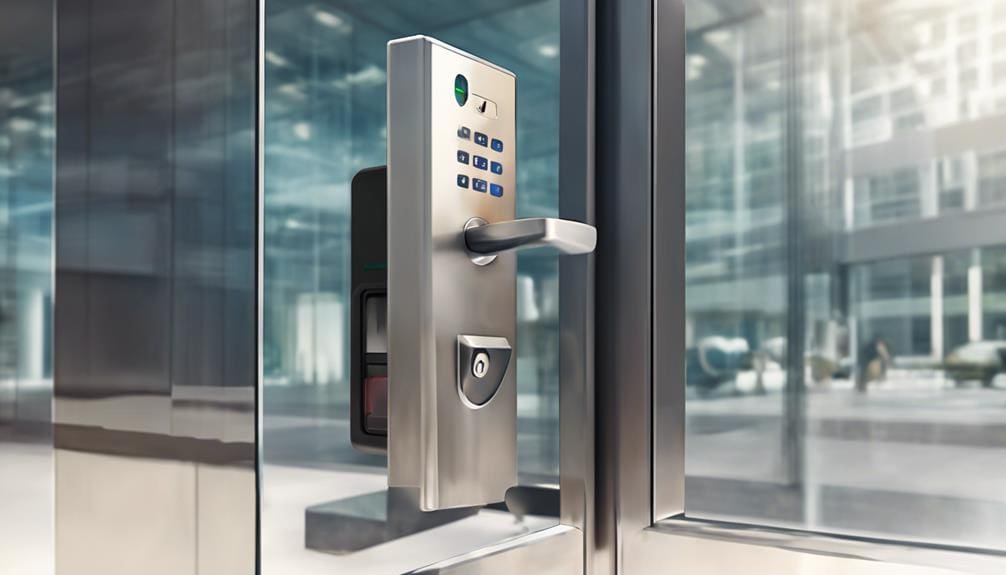
When it comes to power operated locks in Texas, you must make sure they’re motor, solenoid, or pneumatic to comply with regulations. These locks should offer electrical control opening, key opening, and automatic deadlocking to enhance security.
Additionally, door position switches and indicators are essential components mandated by Tex. Admin. Code §259.156.
Mandatory Lock Types
In Texas, commercial properties must use power operated seals that are motor, solenoid, or pneumatic-operated to guarantee compliance with stringent security standards. These seals aren’t just about automation; they’re designed to enhance security and ease of access in a regulated manner. Here’s what you need to verify:
- Electrical Control Opening: Your seals must be capable of being opened electrically, allowing for remote access control.
- Key Opening: Despite their modern tech, these seals must still allow for traditional key use, ensuring you have a manual override.
- Automatic Deadlocking: For added security, the seals should automatically engage a deadlock mechanism when the door is closed.
Furthermore, door position switches and indicators are non-negotiable. They provide real-time status updates of the seal’s position, enhancing monitoring capabilities.
Swinging doors equipped with these power seals must also have heavy-duty door closers to guarantee they close securely every time.
Compliance with Tex. Admin. Code §259.156 is essential. This regulation outlines all the specific requirements for power operated seals in Texas commercial properties, verifying your building is secure and up to code. Adhering to these standards not only keeps you compliant but also fosters a safe and secure environment for all occupants.
Enhanced Security Features
To ensure maximum security and compliance, power operated mechanisms in Texas commercial properties must integrate advanced features like motor, solenoid, or pneumatic locking mechanisms. These mechanisms guarantee reliable operation and enhanced security by providing robust control over access points.
You’ll find that these mechanisms must offer electrical control opening, key opening, and automatic deadlocking features. This redundancy in opening methods guarantees that access isn’t compromised even if one method fails.
Additionally, door position switches and indicators are mandatory components under Tex. Admin. Code §259.156. These elements allow you to verify the locked status of doors, ensuring that they’re secured at all times.
Swinging doors with power mechanisms also need heavy-duty door closers to comply with state regulations. This requirement ensures that doors close properly, maintaining security and preventing unauthorized access.
Compliance With Tex. Admin. Code
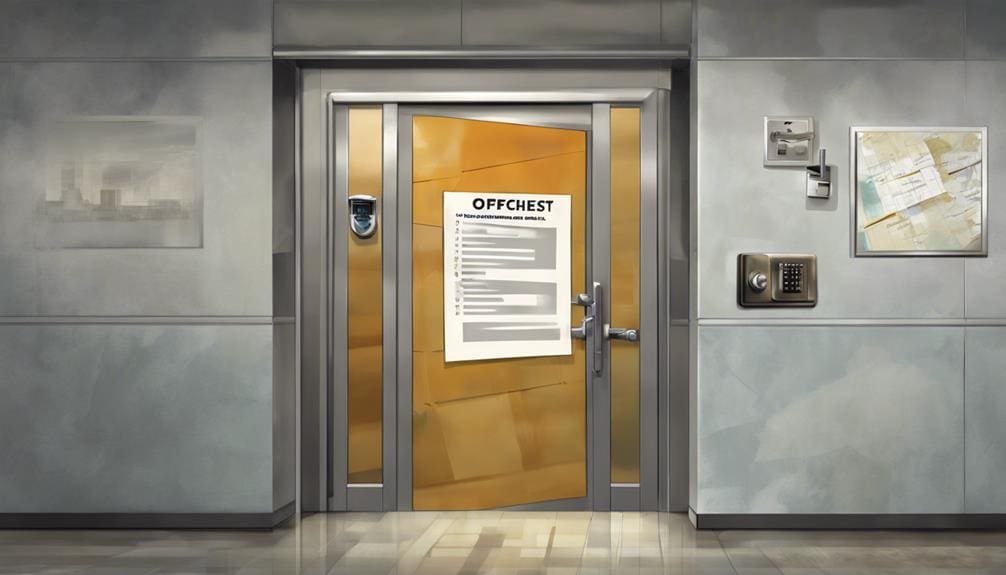
To comply with Tex. Admin. Code §259.156, you must guarantee your commercial property’s power-operated locks meet specified standards. These regulations also mandate keyless deadbolt specifications, including lock types, operational functions, and necessary features.
Power Lock Requirements
Adhering to Tex. Admin. Code §259.156, power locks on commercial doors in Texas must utilize motor, solenoid, or pneumatic operation to guarantee compliance. These types of locks are designed to make sure your establishment meets the stringent requirements set forth by the state, thereby enhancing both security and operational efficiency.
For compliance, power locks must fulfill specific functions:
- Electrical Control Unlocking: Makes certain that authorized personnel can easily unlock doors electronically, providing both convenience and security.
- Key Unlocking: Offers a manual override, ensuring access in case of power failure or system malfunction.
- Automatic Deadlocking: Enhances security by automatically locking the door once it’s closed, preventing unauthorized entry.
Furthermore, door position switches and indicators are mandated components for power-operated locks, allowing you to monitor door status and ensuring compliance with state regulations.
Heavy-duty door closers must also be installed for swinging doors equipped with power locks. This guarantees that doors close securely after each use, maintaining the integrity of your security measures.
Keyless Deadbolt Specifications
In addition to power locks, Texas law mandates the use of keyless deadbolts on all exterior doors in commercial properties to further fortify security measures in compliance with Tex. Admin. Code §259.156.
This requirement isn’t just a suggestion—it’s an important component to ensure your building’s security meets state standards.
Keyless deadbolts offer an added layer of protection against unauthorized entry, giving you peace of mind that your commercial space is safeguarded around the clock. These devices eliminate the need for traditional keys, reducing the risk of lost or stolen keys compromising your security.
By installing keyless deadbolts, you’re not only complying with state regulations but also enhancing the security of your property significantly.
It’s essential to understand that the requirement for keyless deadbolts guarantees that all exterior doors are adequately secured, helping to maintain a safe environment for tenants and assets. Non-compliance can result in penalties and jeopardize the safety of your building.
Hence, it’s important to integrate keyless deadbolts into your security infrastructure to uphold both legal obligations and the highest standards of safety. Prioritize this upgrade to stay compliant and protect your commercial property effectively.
Legislative Amendments and Updates

Legislative amendments to the Texas property code have systematically updated commercial door lock laws, maintaining that landlords and tenants stay compliant with evolving standards. These amendments are essential for preserving safety and security in commercial properties and are often enacted through acts that provide new effective dates and detailed provisions.
To help you navigate these changes, here are three key points to keep in mind:
- Effective Dates: Each legislative amendment comes with a specific effective date. It’s vital for you to stay informed about these dates to guarantee timely compliance with new regulations.
- Code References: The property code specifies provisions relevant to commercial tenancies. Familiarize yourself with these references to comprehend your responsibilities thoroughly and avoid any legal missteps.
- Compliance: Adhering to the updated legislative standards isn’t optional. It’s a legal requirement that helps you evade potential liabilities and secures the safety and security of your property and its occupants.
Professional Assistance and Resources
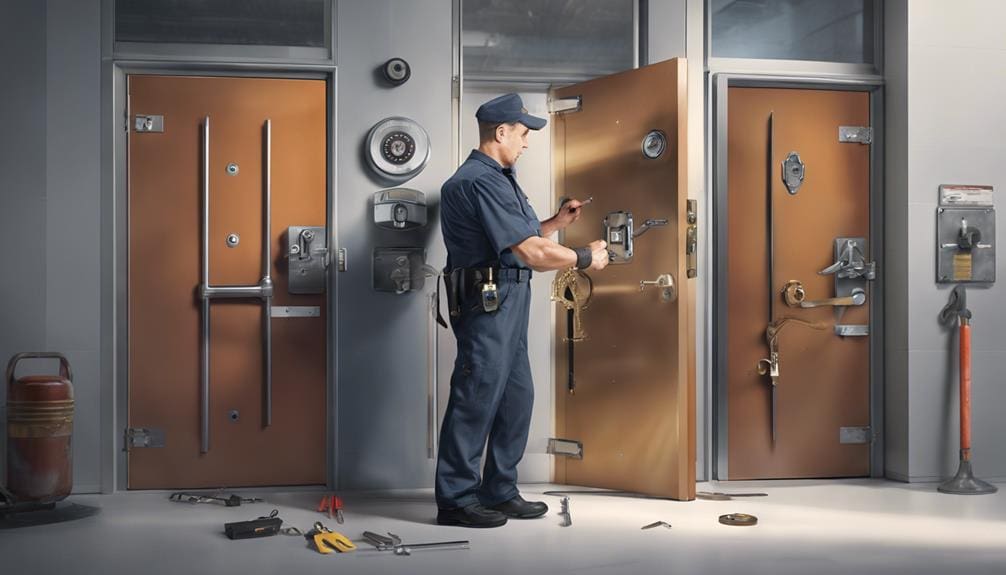
For expert guidance on Texas commercial door lock laws, contact J.R. Rentals & Property Management at (254) 547-9994. They provide compliance support tools and updates on state regulations to guarantee your property meets all legal requirements.
Utilize their services to stay informed and compliant with Tex. Admin. Code §259.156.
Expert Guidance Services
Seeking expert help from J.R. Rentals & Property Management can greatly simplify your understanding and implementation of Texas commercial door lock laws. Their expert guidance guarantees you meet the stringent requirements set forth in Tex. Admin. Code §259.156. Here’s how their services can benefit you:
- Expert Consultation: They provide detailed analysis and advice tailored to your specific property needs, making sure you’re well-informed about all regulatory requirements.
- Compliance Assurance: J.R. Rentals & Property Management helps you implement the necessary lock regulations, ensuring that your commercial property adheres to state laws, thereby avoiding potential legal issues.
- Resource Access: You’ll gain access to specialized resources and tools designed to help you navigate the intricacies of power-operated locks in commercial properties.
Their professional services cater to both property owners and tenants, offering a sense of community and belonging as you work together to achieve compliance. By staying informed about the latest updates and enhancements to regulatory tools, you can be confident that your property remains within legal standards.
Utilizing J.R. Rentals & Property Management’s expertise not only eases the complexity of compliance but also guarantees that you’re always ahead in meeting Texas commercial door lock regulations effectively.
Compliance Support Tools
Utilizing the professional assistance and resources from J.R. Rentals & Property Management guarantees that your commercial property remains compliant with Texas door lock laws while simplifying the regulatory process. J.R. Rentals, located at 1450 Parnell Street, Copperas Cove, TX 76522, offers specialized guidance tailored to both property owners and tenants. You can easily reach them at (254) 547-9994 to access their expertise.
J.R. Rentals provides a robust array of tools and resources designed to help you navigate the complexities of Tex. Admin. Code §259.156. This regulation outlines specific requirements for power-operated locks, covering essential aspects such as lock types, functions, and mandatory safety features. Compliance isn’t just about adhering to legal standards; it’s essential for ensuring the safety and security of your commercial property.
Their team offers meticulous insights into these requirements, ensuring that you understand and implement the necessary measures. With their support, you can rest assured that every door lock in your property meets Texas standards, thereby avoiding potential legal issues and enhancing your property’s security.
This professional partnership fosters a sense of belonging and security, empowering you to focus on your business with confidence.
Property Management Contacts
To safeguard your commercial property stays compliant with Texas door lock laws, J.R. Rentals & Property Management offers expert assistance and a reliable point of contact for landlords and tenants alike. Located at 1450 Parnell Street in Copperas Cove, TX, J.R. Rentals provides professional services that guarantee your property meets all security device regulations stipulated by Texas law.
By partnering with J.R. Rentals, you gain access to:
- Expert Guidance: Their team helps you navigate the complex landscape of Texas commercial door lock laws, clarifying legal responsibilities and ensuring full compliance.
- Comprehensive Support: Whether you’re a landlord or tenant, you can rely on their professional assistance to address any questions or concerns related to property management and security requirements.
- Preventative Measures: They assist in implementing necessary security devices to avoid the serious consequences of non-compliance, thereby safeguarding your investment.
If you have any inquiries or need assistance, contact them at (254) 547-9994.
By leveraging their expertise, you can focus on managing your property while they guarantee adherence to all relevant legal codes.
Don’t leave compliance to chance—trust J.R. Rentals to keep your property secure and compliant.
Frequently Asked Questions
Can You Lock Out a Commercial Tenant in Texas?
You can’t lock out a commercial tenant in Texas without following strict legal procedures. Chapter 93 regulations guarantee tenant rights are protected. If you lock them out unlawfully, the tenant has the right of reentry.
Additionally, you must provide access to delinquent tenants and can’t disrupt their utility services without a valid reason. Ignoring these laws can lead to legal consequences and possibly the tenant canceling the lease.
Are Lockouts Legal in Texas?
Lockouts aren’t legal in Texas. As a landlord, you can’t lock out commercial tenants for non-payment of rent. Tenants have the right to reenter if you lock them out unlawfully.
You must follow strict legal procedures and give proper notice before taking any actions that could lead to a lockout. Violating these laws could result in legal consequences and liabilities, ensuring tenant rights are protected.
What Is Section 92.156 of the Texas Property Code?
Imagine a fortress safeguarding your business. Section 92.156 of the Texas Property Code mandates power-operated locks on commercial properties.
You need motor, solenoid, or pneumatic locks that offer electrical control opening, key opening, and automatic deadlocking. Guarantee door position switches, indicators, and heavy-duty door closers are in place for swinging doors.
These requirements create a secure environment, fostering a sense of safety and belonging for everyone within.
What Is Section 93.007 in Texas Property Code?
Section 93.007 of the Texas Property Code mandates keyless deadbolts on all exterior doors in commercial rental properties. Exceptions include exterior doors with glass windows. Sliding patio doors must have a pin lock and locking handle.
You’re required to install door viewers for added security. Keyless deadbolts, not keyed ones, must be installed on exit doors to comply.
Confirm your property meets these standards to foster a secure community.
Conclusion
Understanding Texas’s commercial door lock laws may seem like deciphering a complex puzzle, but grasping your rights and obligations is vital.
As a tenant, guarantee your space is secure with compliant locks; as a landlord, follow rekeying and security device regulations.
Stay informed about legislative changes to uphold compliance. For a smooth process, think about seeking advice from experts who specialize in Texas lock laws.
Your attentiveness ensures not only doors, but peace of mind.

